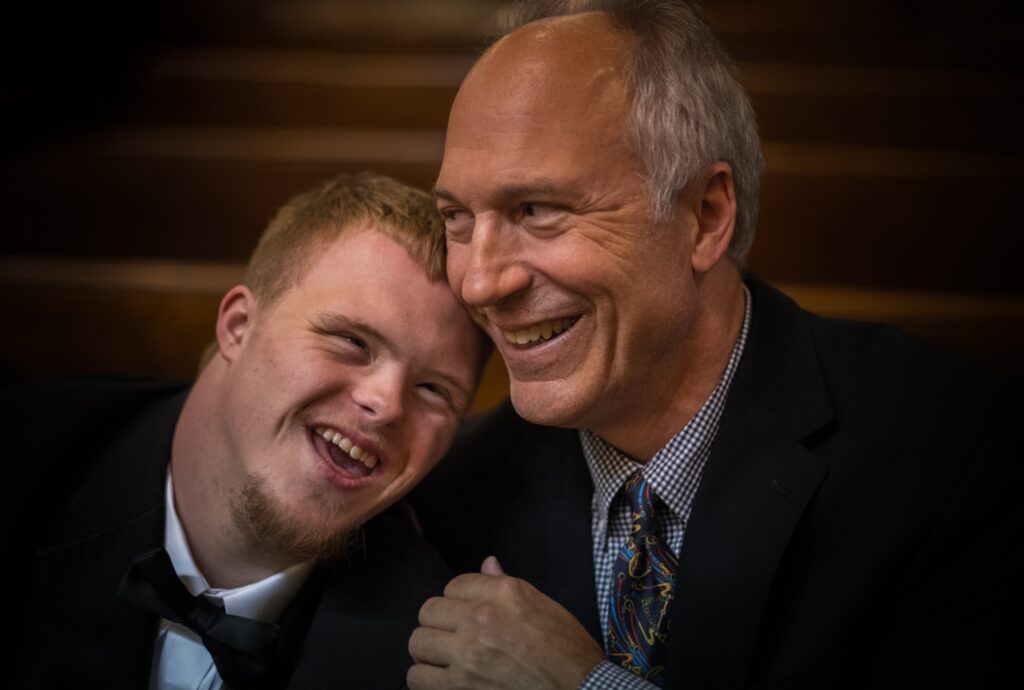A Primer on Guardianship for Incapacitated Adults (over 18 years old).

At age 18, all individuals, even those with mental disabilities, reach the age of majority in the eyes of the law. This is true even when the individual is unable to make independent decisions regarding her personal, legal, financial, and medical affairs. At the age of majority, parents are no longer able to make decisions on behalf of their children and may no longer be entitled to receive health information or participate in treatment options.
How can you protect your disabled adult child and stay actively involved in her affairs after she turns 18?
The simple solution is for the individual to execute a Power of Attorney and Healthcare Proxy (“POA”) appointing a trusted person as Agent. The individual executing these documents must have a basic level of legal “capacity”; in other words, she must be able to understand that she is appointing someone to make decisions and handle affairs on her behalf. The POA can be immediate, meaning that it is effective as soon as it is signed, or springing, meaning that it only becomes effective upon the occurrence of a specified event, like a disability or hospitalization. A POA can be revoked or modified at any time. Further, the POA can be tailored to fit the specific needs of an individual, providing for limited or broad powers, as desired. A POA is also inexpensive and relatively easy to accomplish.
If an individual does not have the legal capacity to sign a POA, or if for any reason the family feels that the POA will not provide enough protection (i.e., because it can be revoked at any time), the family may initiate guardianship. A guardianship is an involuntary proceeding by which the Court determines whether an individual is “incapacitated”. Upon a finding of incapacity, the Court will appoint someone to act on behalf of the incapacitated individual. The legal standard for guardianship requires a determination that an individual is “an incapacitated person who is unfit and unable to govern himself or herself and manage his or her affairs”. R. 4:86-2(b)(6).
An individual cannot consent to a guardianship. A guardianship can even be established over the opposition of the “alleged incapacitated person”, if prior arrangements, like a POA, have not been made. Similarly, even if a POA is in place for an alleged incapacitated person, but the Agent neglects, refuses or simply cannot act on the individual’s behalf (and the individual does not currently have the capacity to appoint a Successor Agent), a guardianship may be initiated.
A guardianship can be established for the “Person”(medical, personal, and legal affairs), the “Property” (financial affairs), or both. A guardianship requires the filing of a Petition with the Court. The Petition must comply with certain legal requirements and must be supported by two independent doctors’ reports, which are usually obtained for a fee. The Court will appoint legal counsel for the alleged incapacitated person. Counsel has a duty to act as an advocate for the wishes of the client (as long as those wishes are not patently absurd and do not pose an undue risk of harm), rather than advocating for what Counsel may believe is in the client’s best interests. If, however, Counsel feels that the individual cannot adequately act in her own best interests, Counsel may ask that the Court appoint a guardian ad litem, or a separate attorney who must make an investigation solely as to the best interests of the alleged incapacitated person.
A guardianship can also be tailored to fit the needs of the individual. For example, a Limited Guardianship can ensure that an individual retains certain rights, like the right to vote, drive, marry, and handle certain aspects of her affairs independently. A Plenary Guardianship, on the other hand, is much more restrictive and does not provide for such “carve-outs”.
A guardianship can be costly. There are ways to eliminate, or minimize the cost, however. First, individuals receiving benefits via the Division of Developmental Disabilities (“DDD”) can receive assistance with the filing. Similarly, families can ask the Bureau of Guardianship Services to process the Guardianship Petition, however, both agencies currently have thousands of requests pending and it may take years for a Petition to be filed. Second, a family may decide to file the Guardianship Petition “pro se”, or without an attorney, however, there are still court fees associated with this filing, including obtaining the doctors’ reports, and families may not feel comfortable navigating the nuances of the legal system alone. Finally, a family may engage the services of an Elder Lawyer to file a Guardianship Petition. In fact, if a family is contemplating requesting appointment as Guardian of the Property, is it usually required that the family obtain private counsel.
A Guardianship should be viewed as a solution of last resort, as it can be very restrictive. A guardianship essentially eliminates an individual’s fundamental right of self-determination and subjects the individual’s affairs (and the guardian’s actions) to continued court oversight and involvement. For example, annual reports of well-being are required to be filed with the Court by the Guardian of the Person and annual accountings must be filed by the Guardian of the Property. Additionally, certain financial disbursements must be approved by the Court in advance, and modifications to the terms of the Guardianship can only be made by the Court. Deciding whether a Guardianship Petition is right for your family can be complex and daunting and should be discussed with a trusted legal professional.